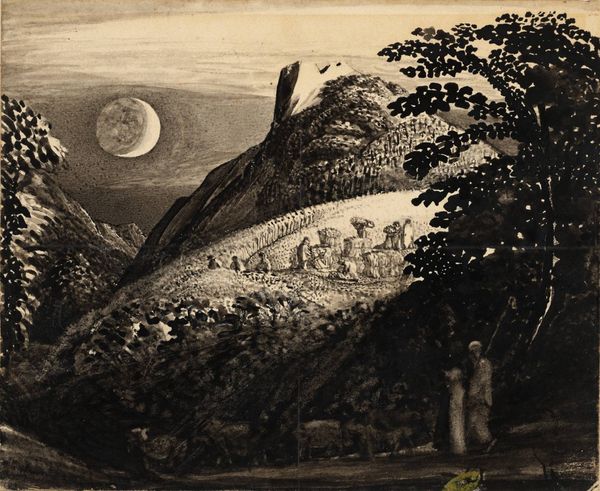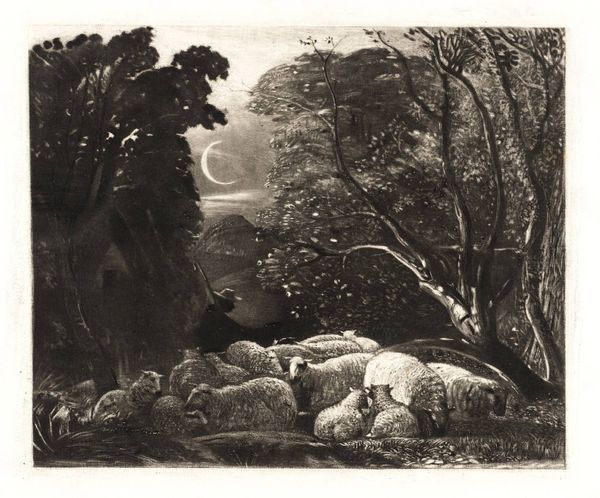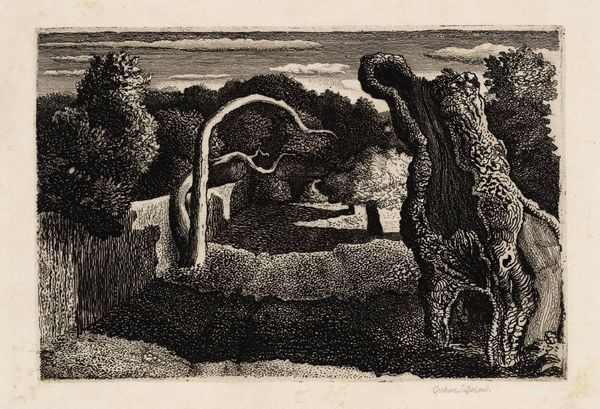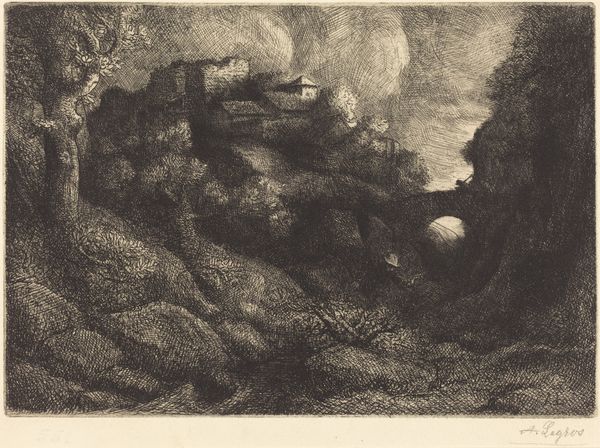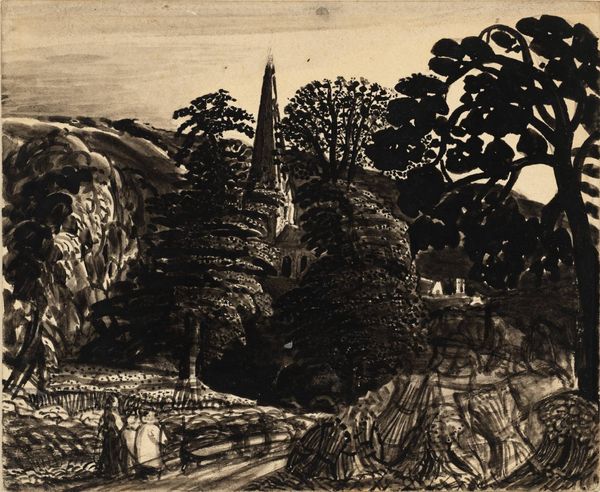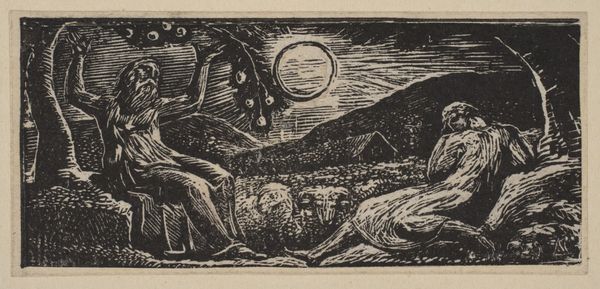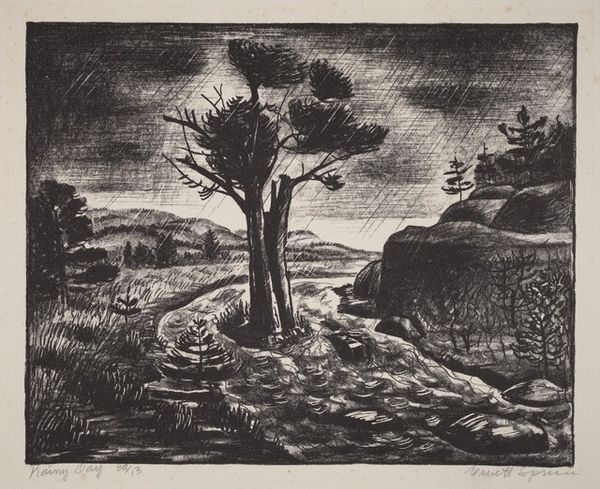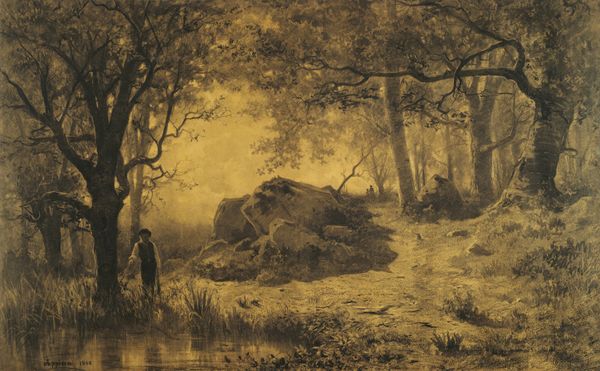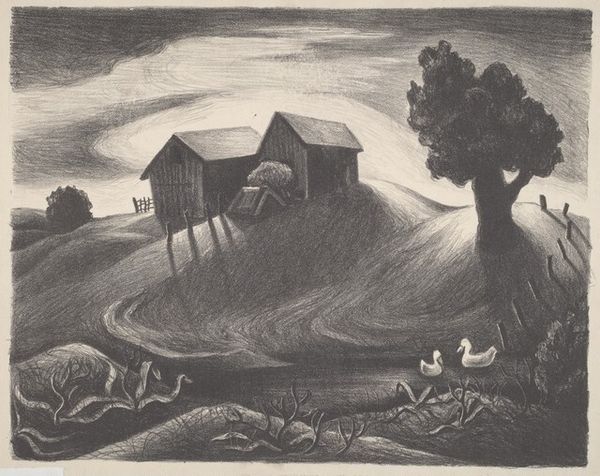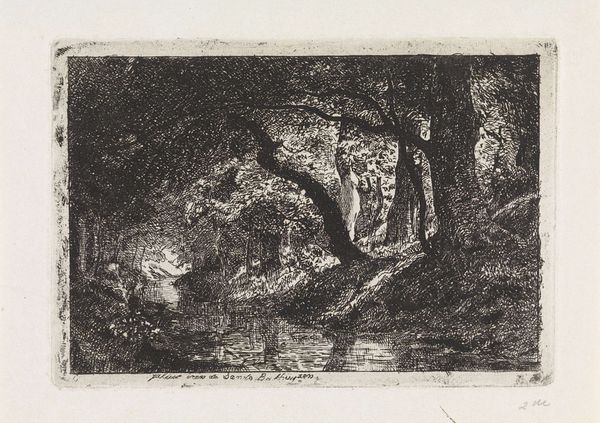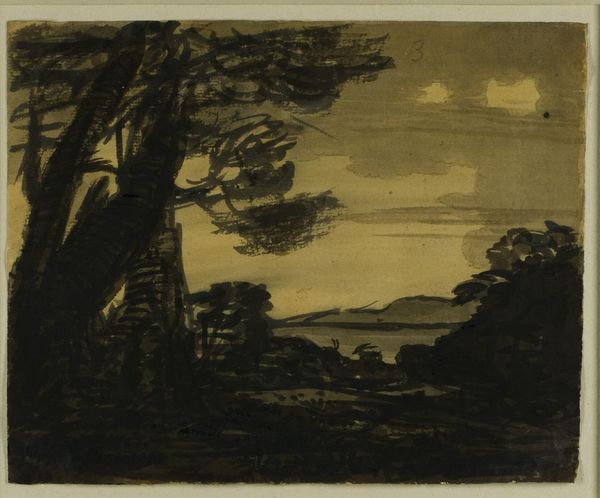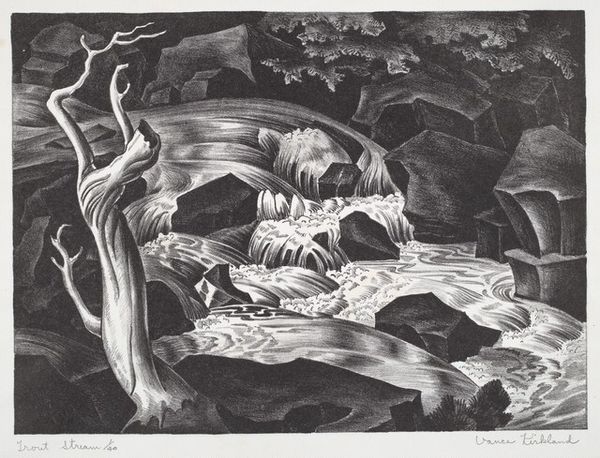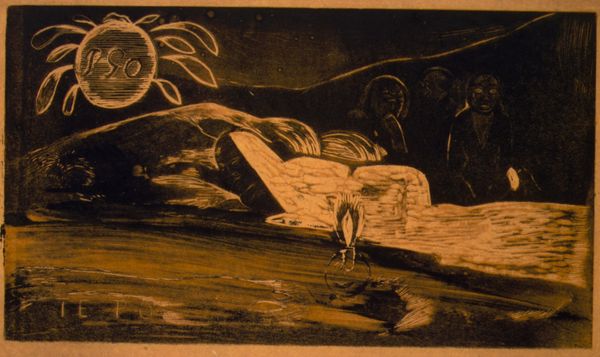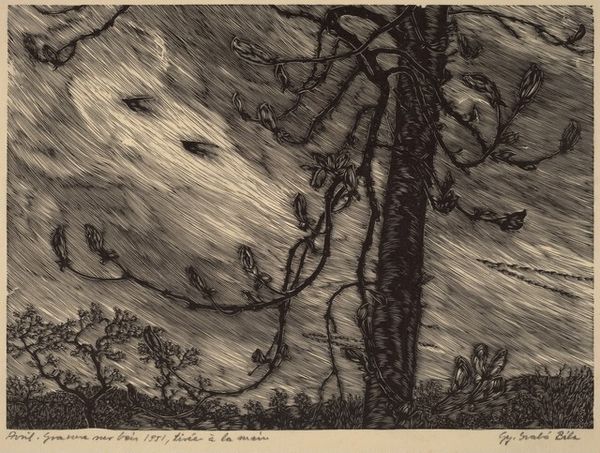
Dimensions: support: 152 x 184 mm
Copyright: CC-BY-NC-ND 4.0 DEED, Photo: Tate
Curator: This is Samuel Palmer's "Moonlight, a Landscape with Sheep," a small, evocative work residing here at the Tate. What strikes you first about it? Editor: That luminous moon, definitely! It pulls you into a scene both familiar and mystical, like a childhood dream half-remembered. Curator: Palmer often infused his landscapes with a symbolic weight; the moon, of course, is ancient, tied to cycles, to the feminine, to hidden knowledge. Editor: The sheep almost blend into the landscape, part of its rhythm. Are they symbols, too, or just... sheep? Curator: Perhaps both! Sheep, traditionally symbols of innocence, are nestled in this intensely romantic vision of nature—a nature that is both comforting and a little overwhelming. Editor: It makes me think about how we project our own stories onto the night sky, finding patterns and meaning in the darkness. I will never look at sheep the same way. Curator: Yes, Palmer’s work encourages us to see the deeper stories within the everyday.
Comments
tate 10 months ago
⋮
http://www.tate.org.uk/art/artworks/palmer-moonlight-a-landscape-with-sheep-n03700
Join the conversation
Join millions of artists and users on Artera today and experience the ultimate creative platform.
tate 10 months ago
⋮
Samuel Palmer was one of the group of men known as ‘The Ancients’, who greatly admired Blake in his later years. Palmer was particularly influenced by Blake’s illustrations to Dr Thornton's Pastorals of Virgil. For Palmer, nature offered the ‘gate into the world of vision’. He was particularly fond of twilight scenes, in which the light effects heightened the sense of divine mystery in his visionary landscapes. His simplified drawing style recalls the art of the fifteenth and sixteenth centuries, which he saw as spiritual and uncorrupted, unlike modern art. Gallery label, September 2004
